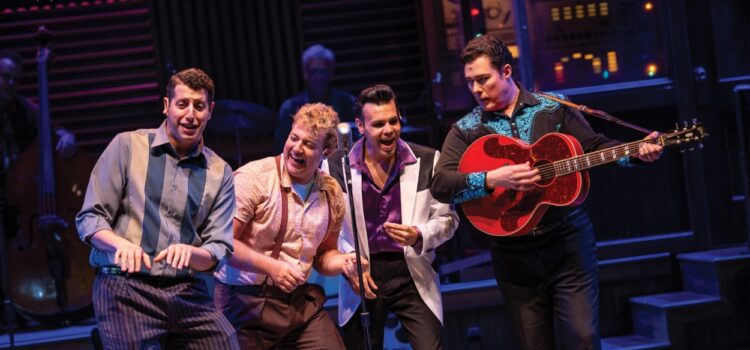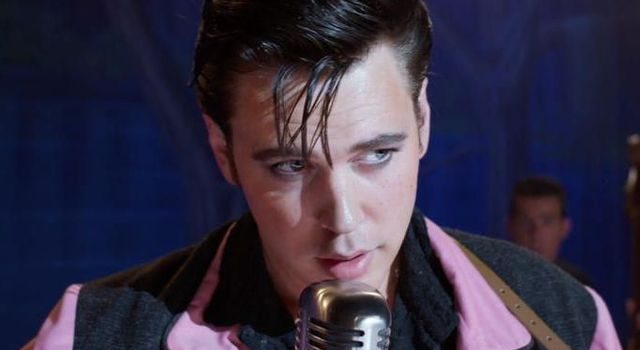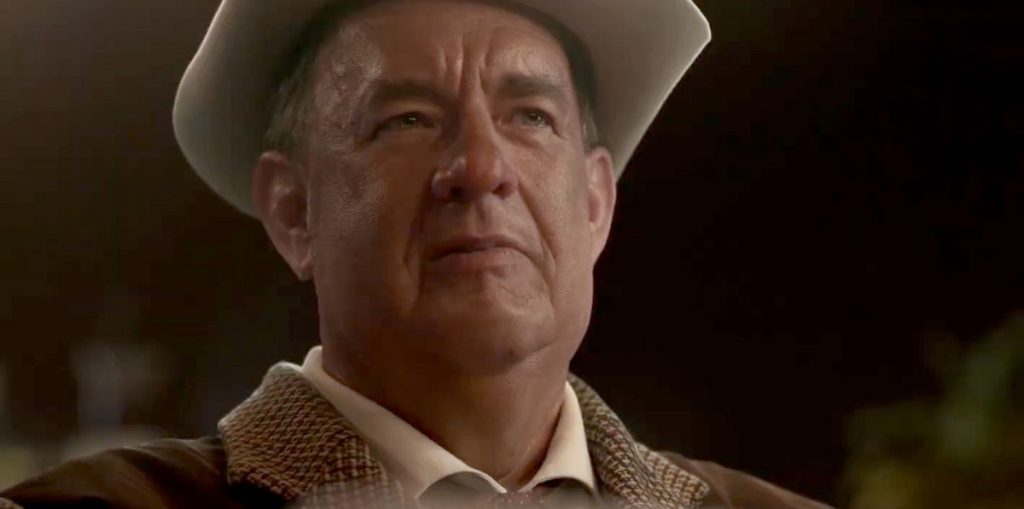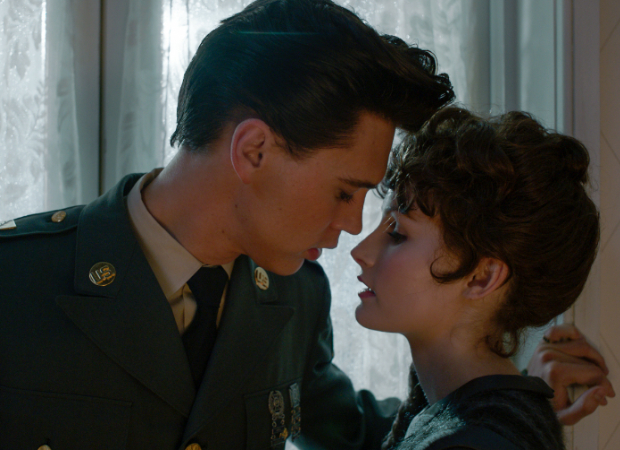By Lynn Venhaus
To see the transformative power of music first-hand, just be in an audience for Stages St. Louis’ production of “Million Dollar Quartet,” because you will watch as a crowd of adults become kids again.
On Dec. 4, 1956, Johnny Cash, Carl Perkins, Elvis Presley, and newcomer Jerry Lee Lewis gathered at Sun Studios in Memphis, all at different stages of their careers, and jammed the night away – for the first and only time.
The man who gave them their start, Sam Phillips, deservedly known as “The Father of Rock ‘n Roll,” narrates this twist-of-fate tale, a true David vs. Goliath industry narrative featuring the star power of four future legends.
As impresario Phillips, Jeff Cummings is well-suited to play the country boy mogul with savvy instincts on hit-making, conveying equal parts passion and pride.
The cast’s remarkable full-throttle energy, showmanship, and musicality turned the Kirkwood Performing Arts Center’s Ross Family Theatre into a freewheeling and fun house party where the ready-to-rock crowd blissed out to the enduring rhythm of roots rock ‘n roll. The company, all seasoned professionals, many veterans of this show, looked like they were having so much fun performing together.
Perhaps I can speak for my fellow Boomers, as I felt we were transported back to sock hops, Teen Towns and listening to our transistor radios with earphones before bedtime. And couldn’t resist the urge to toe-tap and clap along, for the hits just kept on coming: “Hound Dog,” “Long Tall Sally,” “Great Balls of Fire,” “Who Do You Love,” “Sixteen Tons,” “Folsom Prison Blues,” and “I Walk the Line” among them.
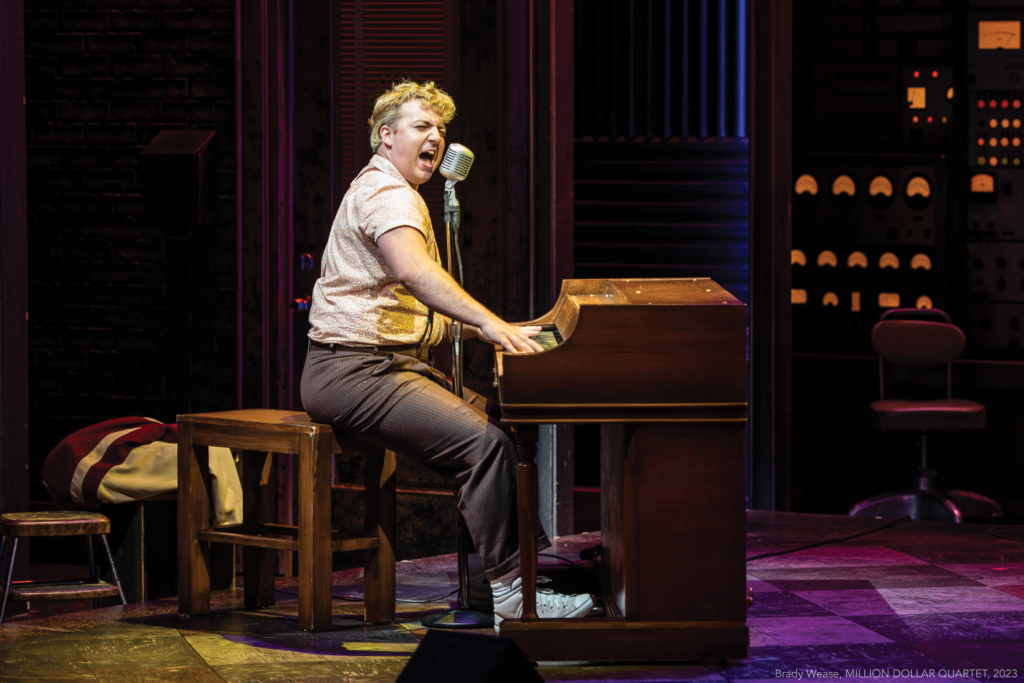
But it’s not merely a blast from the past — rather, a vivacious retelling of magical music moments in pop culture history. Music Director and Conductor David Sonneborn, who also plays the drums as session musician W.S. “Fluke” Holland, has splendidly brought out the best in everyone.
The joint was jumping, and it was a thrill to be a part of such a joyful celebration. There was a whole lotta shakin’ going on during the coda/extended curtain call, with the crowd on their feet for most of it — and singing along to “See You Later Alligator.”
Director Keith Andrews, who also choreographed Edward La Cardo as an unstoppable Elvis, marvelously captured the lightning-in-a-bottle aspect of four rock ‘n roll influencers for a perfect show, lovingly crafted and crisply performed by an ensemble who achieves synchronicity together but also stands out individually. It’s his sixth time directing this show, and his command of the material is evident.
This jukebox musical displays the heart, humor and overflowing talent of these scrappy guys who came from humble Southern beginnings, carved a place in history for themselves and put Sun Studios on the map.
Carl Perkins, who hadn’t been able to follow up “Blue Suede Shoes” with another hit, has a simmering resentment towards Elvis, for his performance on “The Ed Sullivan Show” and other grievances. He has a chip on his shoulder and a festering attitude, which Jeremy Sevelovitz carefully projects.
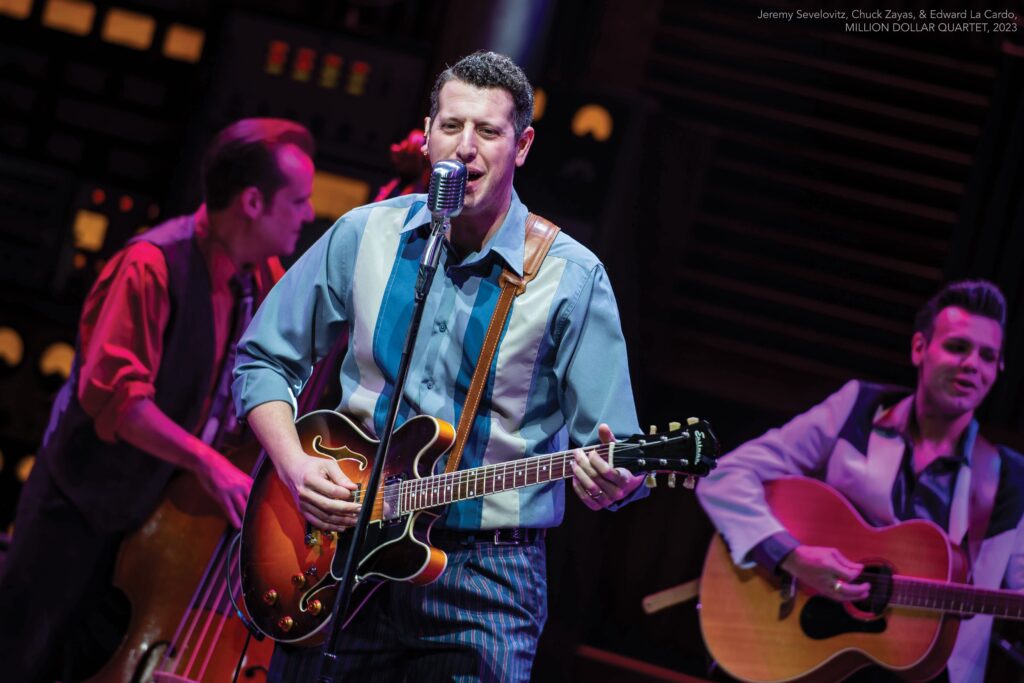
Carl’s brother, Jay, is one of the session musicians, and Chuck Zayas knows how to slap that bass, having been a founding cast member, and has been rockin’ out for more than 30 years in bands and on stage.
The story begins with the premise that rockabilly specialist Carl Perkins is there to record some new music with a brash piano player from Louisiana – Jerry Lee Lewis, whose swagger and desire to be the center of attention rubs him the wrong way. Brady Wease’s bravado blazes the stage as a boyish “The Killer” and his prowess pounding the keys is fun to watch.
With his deep voice and confident demeanor, Scott Moreau’s ease as Johnny Cash is noteworthy. He has played this role more than 1,000 times, and that experience shows. His way with the guitar, and impressive vocals are riveting. “Ghost Riders in the Sky” is one of the standouts, and his gospel influences are emphasized.
La Cardo embodies the young energetic Elvis, now a movie star too, who would prefer solid career advice rather than a chorus of ‘yes’ men. In this show, he brings a girlfriend along, and Shelby Ringdahl fits right in as Dyanne, belting out “I Hear You Knockin” and delivering a sultry “Fever.” At the real session, Elvis brought Marilyn Evans, now Riehl, who was a dancer.
Besides the smokin’ hot beats, there is drama in between songs dealing with show biz and their personal relationships, just to create conflicts and tension.
The show’s original concept by Floyd Mutrix was solid gold, and it premiered in Florida in 2006. A regional Chicago production was mounted in 2008, starting at the Goodman, then moving over to the Apollo, where it celebrated its 2,500th performance six years later. The show closed in 2016, ranking as the third-longest running show in Chicago theater history.
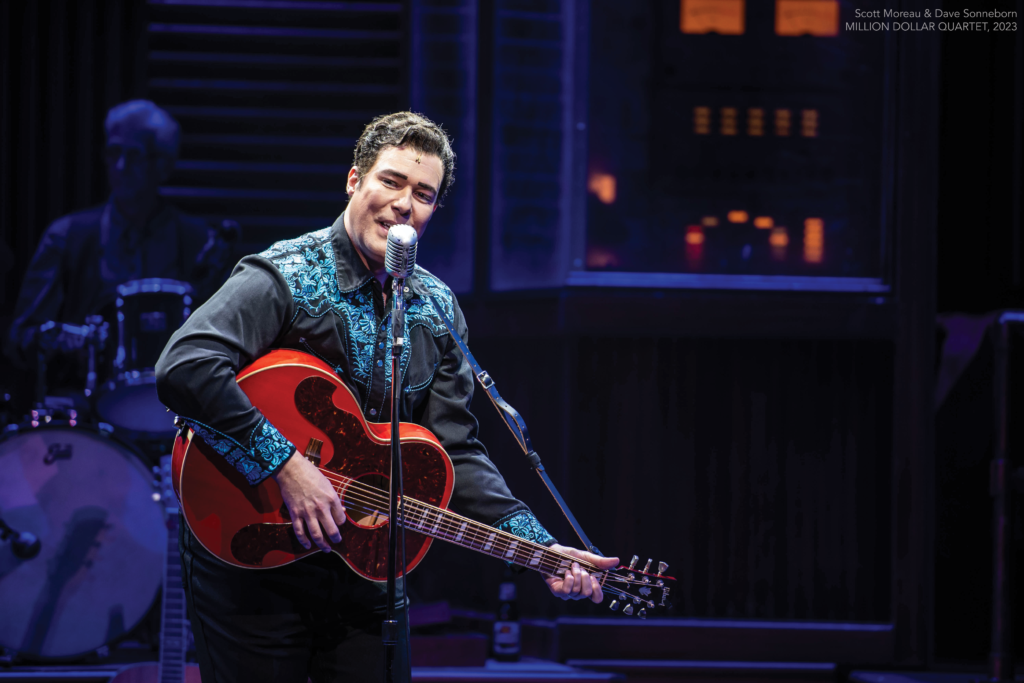
Nominated for three Tony Awards — for Best Musical, Book by Colin Escott and Mutrux, and Best Performance by a Featured Actor, which was won by Levi Kreis as Jerry Lee Lewis, the show opened on Broadway in April 2010 and closed in June 2011, after having played 489 performances and 34 previews,
I first saw this on its national tour in 2013 at the Fox Theatre, and then The Rep staged a slick, exuberant production in 2017. While both were enjoyable and executed well, the Stages one seems the most spirited, with an extra oomph of pizzazz and far more nuance.
Not only is this ensemble aces, percolating on all cylinders, but the creative team has showcased its mastery – scenic designer Adam Koch for a vintage studio interior, costume designer Brad Musgrove – of course the quartet are in colorful sequined blazers for the grand finale!, the exceptional expertise of lighting designer Sean M. Savoie, and clear sound designed by Beef Gratz.
The vibrancy of the production is unforgettable, and you surely will sing a happy tune while leaving the building.
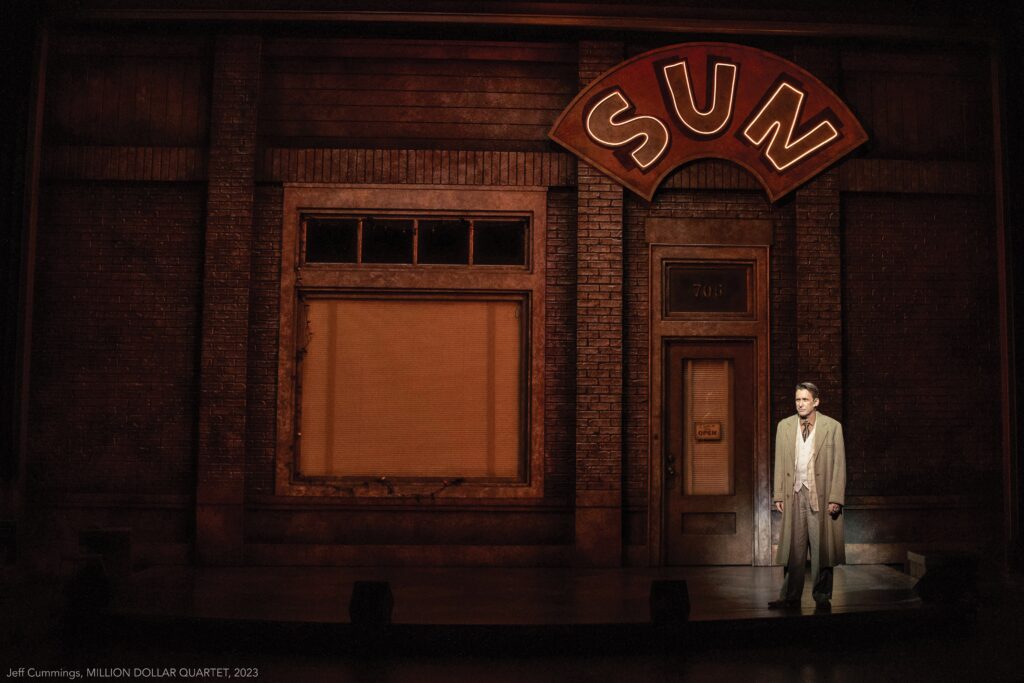
“Stages St. Louis presents “Million Dollar Quartet” from Sept. 8 to Oct. 8 at the Kirkwood Performing Arts Center. For more information: stagesstlouis.org.
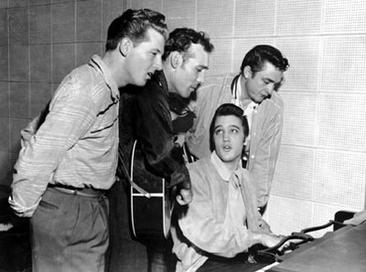

Lynn (Zipfel) Venhaus has had a continuous byline in St. Louis metro region publications since 1978. She writes features and news for Belleville News-Democrat and contributes to St. Louis magazine and other publications.
She is a Rotten Tomatoes-approved film critic, currently reviews films for Webster-Kirkwood Times and KTRS Radio, covers entertainment for PopLifeSTL.com and co-hosts podcast PopLifeSTL.com…Presents.
She is a member of Critics Choice Association, where she serves on the women’s and marketing committees; Alliance of Women Film Journalists; and on the board of the St. Louis Film Critics Association. She is a founding and board member of the St. Louis Theater Circle.
She is retired from teaching journalism/media as an adjunct college instructor.

